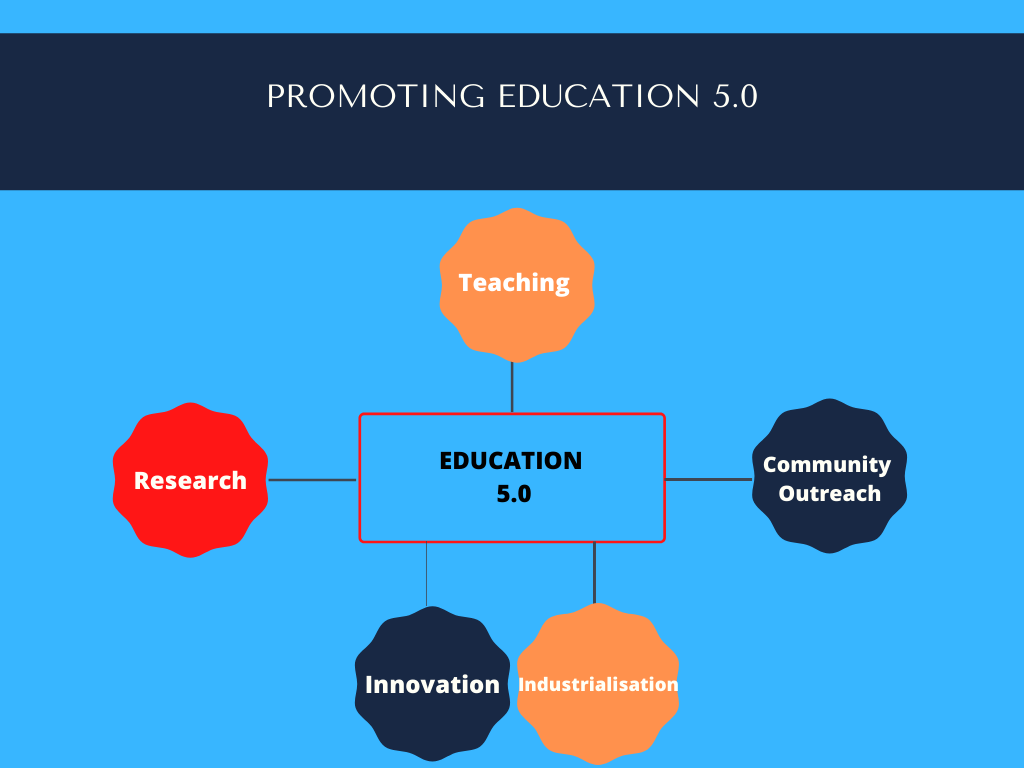EDUCATION 5.0 is a policy that has been adopted by the government with a specific focus on inculcating in both educators and students the idea of generation and implementation It is a policy that is, indeed, sound on paper and weak at the point of implementation because of a gamut of factors that this opinion piece seeks to explore and exploit This paper intends to evaluate the Education 5.0 policy against individual factors like expertise, motivation, personality traits, cognitive factors, social skills and attitudes of idea generators and idea implementers within the purview of project management These pillars of Education 5.0 should be viewed as complementary to one another, as opposed to being in competition
This augmentation in terms of project management embraces cross-functional collaboration between and among team leaders, team members, consumers of idea generation and implementation and many other stakeholders involved in a project Education 5.0 in the legalese of project management is an idea that potentially can have an impactful outcome that can be defined in terms of its capability to offer services and products to the Zimbabwean community and beyond However, for any idea generation to be effective concerning idea implementation, there are individual factors, as cited in the vignette, that need to be considered These factors constitute the centre of gravity for innovation and will form the basis of the discussion
Expertise is critical in idea implementation Without job knowledge, innovation (idea implementation) suffers a stillbirth An examination of the Zimbabwean education system reveals that curriculum innovation is done without any engagement of street-level bureaucrats like educators who are at the point of service delivery For example, the Heritage Based Education Curriculum came as a cup of coffee for educators and educator organisations, that is, it was instantaneous
Educators and educator organisations were not involved in its development and every other paraphernalia associated with curriculum change, like books and syllabi, were not ready at the time of the introduction of the Heritage Based Curriculum Essentially, this was a professional earthquake for educators in Zimbabwe as they were found napping, without the relevant official properties and epistemic values to cope with the innovation Motivation in the whole process of change is the lubricant of idea implementation Educators in Zimbabwe at every level are not happy about their salaries
They lack both internal and external movere (motivation to drive idea implementation of Education 5.0 For any innovation to be successful, there is a need for a supportive work environment that can spur workers to work with a sense of obligation and duty At the material time, educators in Zimbabwe are more worried about moonlighting than they are about the four walls of the classroom or lecture room Personality traits of teachers are also important in driving idea implementation
These personality traits may not be homogeneous but are triggered by both internal and external environments Generally, educators in Zimbabwe no longer have the zeal to work beyond the call of duty because the idea generators of Education 5.0 brought into existence a policy that is not supported in terms of organisational practices, culture and resources.
Source: NewsDay Zimbabwe
All Zim News
All Zim News is a central hub for all things Zimbabwean, curating news from across the country so no story is missed. Alongside aggregation, our team of nationwide reporters provides real-time, on-the-ground coverage. Stay informed and connected — reach us at admin@allzimnews.com.
